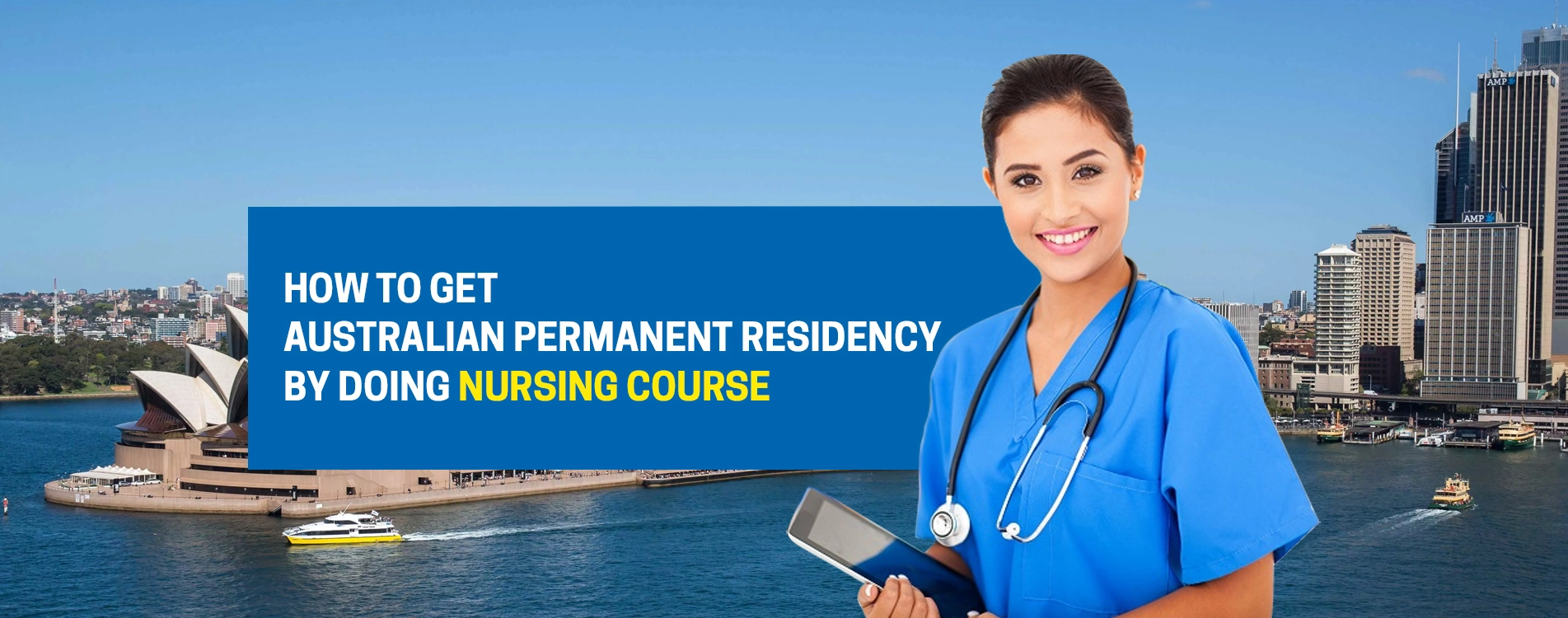
The question we often get asked by many of our clients is what course we think is one of the best to get PR in Australia. Though the answer to this may be slightly controversial because nothing can assure anyone PR in any country; nonetheless, we suggest them to go for nursing or any other healthcare-related course most of the time.
When it comes to Australia, nursing has always been in huge demand. There has been a noticeable spike in the requirement of nurses in the past decade, and this demand is projected to grow in the coming years too! However, we still get asked many questions, like “will there be permanent residency for nurses in Australia in 2022?”, “what were the PR points for nursing in 2021?”, “how much do you think will be the PR points for nursing in Australia in 2022?”, etc. Questions don’t end, but the answer remains the same. Nursing is PR oriented course provided one has enough nursing PR points at the time of their application.
Now, there are multiple ways in which an individual can get PR by doing nursing course in Australia. Herein, we will discuss one of the most common scenarios wherein the candidates have already done nursing in their home country and are looking for PR in Australia.
Eligibility Criteria for Nurses
If you have done your nursing program from your home country and are looking to get PR in Australia, you’ll need to be qualified according to the Australian standards first. Of course, you’ll need to be eligible too! The Australian Health Practitioner Regulation Agency (AHPRA) is the assessing body that registers applications from internationally-qualified nurses and midwives makes sure the nurses are trained and qualified suitably for registration within Australia.
To enroll in a nursing program in 2022, the candidate must have a sufficient PTE score for nursing registration in Australia for 2022, which comes out to be 65 to 72 in PTE or at least 7 bands in all modules in IELTS.
The eligible qualifications are a 4-year nursing program (B.Sc. Nursing) or a post-basic plus 3-year nursing program.
Also, the applicant must have at least one year of work experience (in their own country) in the last two years of the time of application.
Please note that GNM is not eligible for full-time work in Australia.
Furthermore, the interested applicant will need to score at least 7 bands in each section of IELTS (or equivalent in PTE).
You’ll need to register your qualification with NMBA (Nursing and Midwifery Board of Australia) and get your qualification assessed by AHPRA and will also need to do a 3-month bridging course, which may cost you anywhere from $12,000 to $15,000 depending upon the provider. Once the candidate has done the bridging course, they can work as a registered nurse in Australia.
Applying for PR (Process)
Step1Once you are registered to work in Australia after the bridging course, you’ll need to get your skill assessed by ANMAC – Australian Nursing & Midwifery Accreditation Council.
Step 2The next step is EOI, i.e., Expression of Interest. Though the benchmark to qualify they say is 60 points to get the invitation, it is suggested you have at least 70 to 75 points in order to make sure you get the invitation. Increasing competition in the applications has raised the bar from 60 to 70 points. You should be able to score a good number of points if you have a good score in IELTS/PTE and have considerable relevant experience.
You can apply under different subclasses for PR, namely subclass 189 (independent), subclass 190 (state-sponsored) and subclass 491 (regional area).
The subclass 189 visa doesn’t have any condition attached to it; the visa holder can work anywhere in Australia. It is suggested you apply for 189 only if you have high points, like around 80.
On the other hand, subclass 190 visa holder is bound to work in a particular state with a few more conditions attached to the visa. One can apply for this visa with around 70 points.
For subclass 491 visa, the visa holder will need to work in designated regional areas of Australia. You can apply for this visa with 65-70 points.
Assistance with PR Application
Though Australian Government provides all the information and gives all the freedom to apply for visa online on your own, it is suggested you take assistance of a registered MARA agent who can apply and correspond on your behalf.
Hiring a registered MARA agent certainly pays off and cuts off all the hassle from the process of getting PR for nurses in Australia.
For detailed information on how we can help overseas nurses get PR in Australia, please feel free to get in touch with one of our MARA agents.



